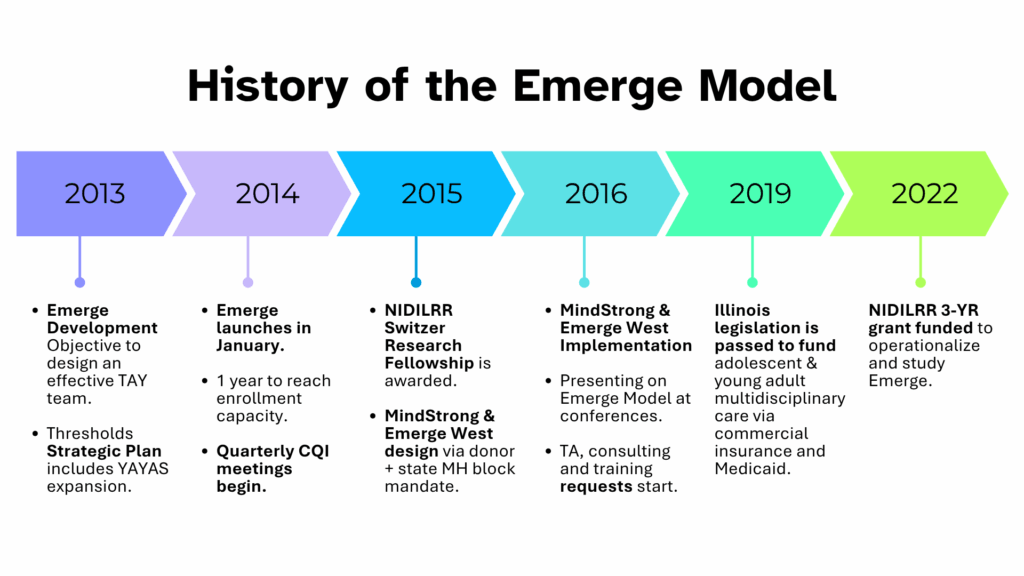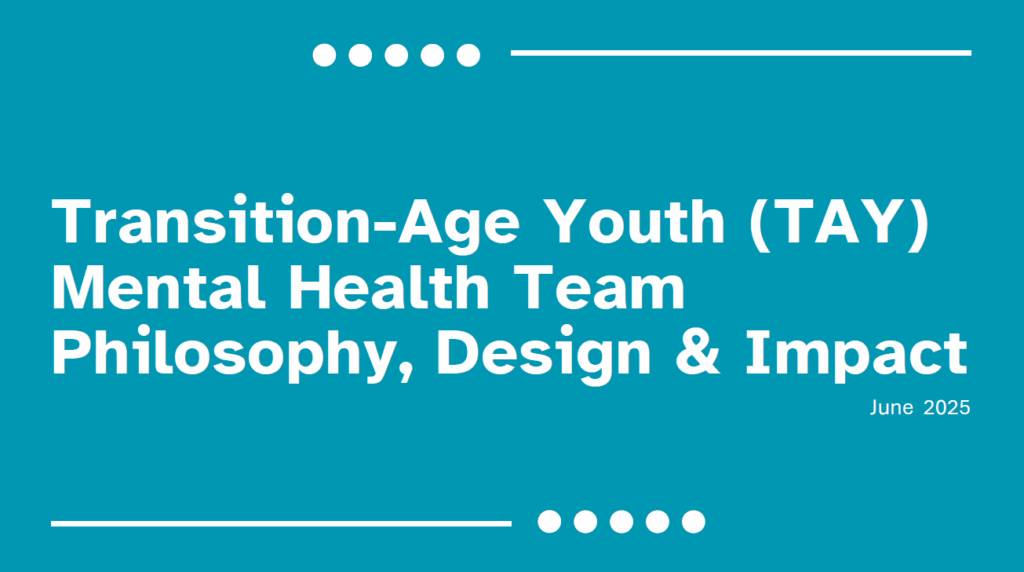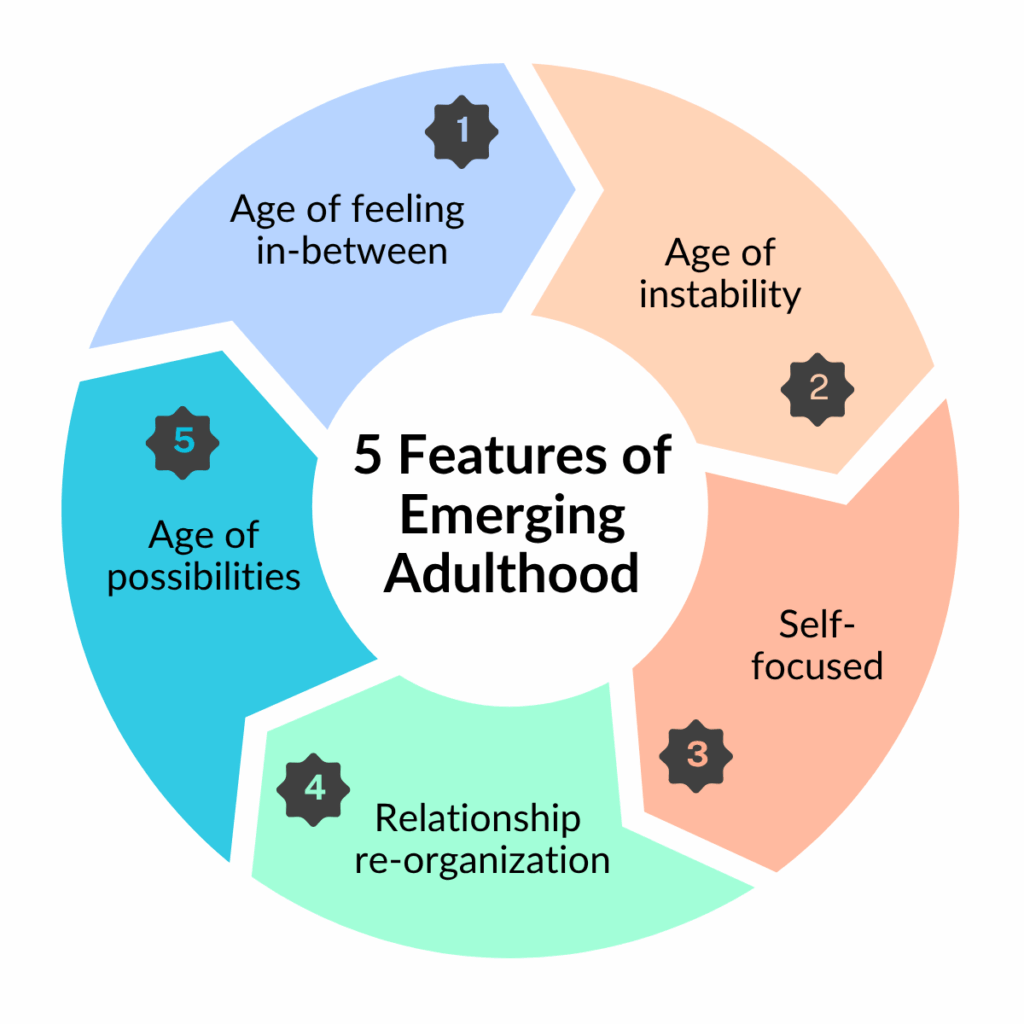The Emerge Model
The Emerge multidisciplinary model is developmentally focused on emerging adults. Emerge focuses on all developmental and social aspects of wellness that are important in emerging adulthood: friends, romantic relationships, sense of belonging, work, school and career exploration, developing independent living skills and decision-making. Emerging adulthood occurs approximately between ages 17–27, spanning late adolescence and young adulthood.

Emerge Tools & Resources

View full slide deck from Emerge Model Webinar with resources and information about TAY team philosophy, design and impact.
5 Features of Emerging Adulthood
Age of possibilities: Most change possible compared to any other time in the life span, and sense of hope.
Instability: Change is to be expected. Mental health challenges cam make it difficult to navigate instability.
Reorganization of Relationships: Major shift from relying on caregivers to relying on self, friends, & community
Self-Focus: Young people have less adult responsibilities & less oversight, and are focused on figuring out who they are.

Emerge Research Study
Examining Feasibility of Community-based Multidisciplinary Team-based Model (Emerge) for TAY with Serious Mental Health Diagnoses: Comparing young people’s experiences with Emerge services (community support, care coordination, evidence-based therapies, Peer Support, Supported Employment & Education + prescribing) to those in adult-services-as-usual, and developing a manual, fidelity scale, and training tools for Emerge replication in Illinois and nationally (NIDILRR-funded; 2022-2025).
Study Participation
View the FACT sheet for details about study participation, eligibility and enrollment.
Contact rebecca.johnson1@austin.utexas.edu to learn more and enroll.
TIEMH Emerge Publications
- “Integrating Positive Youth Development into Coordinated Specialty Care for a recent onset of psychosis”
Klodnick, V.V., Johnson, R. P., Cohen, D. A., Fagan, M., Fetzer, P., & Clark, H. (2022). Journal of Social Work in Mental Health, 21(2),180-202.
- “Developing a community-based multidisciplinary service exit typology for young adults with serious mental health conditions”
Klodnick, V. V., Johnson, R. P., Brenits, A., Cohen, D. A., Fagan, M. A., Paauw, M. A., & Schneider, A. (2021). Psychiatric Rehabilitation Journal, 44(4), 381–390. - “Meeting the Developmental Needs of Young Adults Diagnosed with Serious Mental Health Challenges: the Emerge Model”
Klodnick, V.V., Malina, C., Fagan, M.A. et al. J Behav Health Serv Res 48, 77–92 (2021). - “Thresholds MindStrong & Emerge Models: Multidisciplinary, feasible, effective & sustainable.”
Klodnick, V. V., Fagan, M. A., Brenits, A., Gomez, S., Malina, C., Zeidner, E., & Viruet, J. (2019). Focal Point, the Pathways RTC Journal. - “Developing quality assurance practices and measures for implementing and sustaining the transition to Independence Process TIP Model.”
Klodnick, V.V., Clark, R., Johnson, R., & Fagan, M. (2019). Psychiatric Rehabilitation Journal, 42(1), 71-78.



